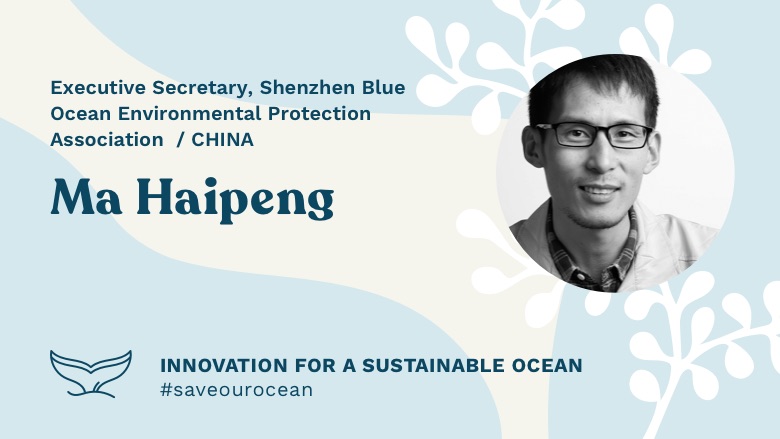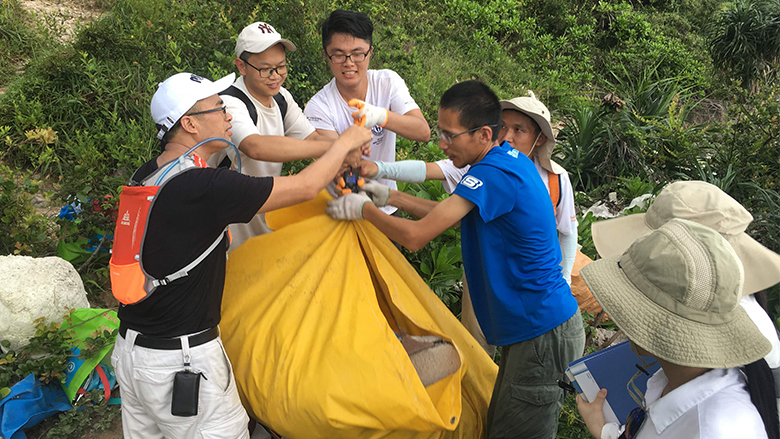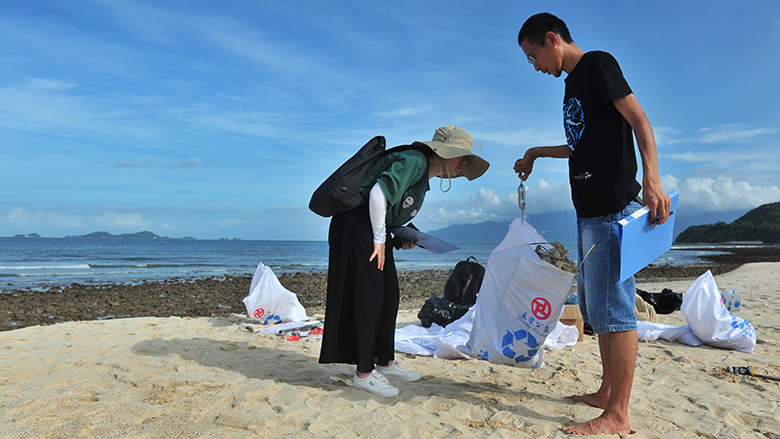Tell us a bit about yourself
I am Ma Haipeng, Executive Secretary-General of Shenzhen Blue Ocean Conservation Association (BOCA). I was born in Weifang, a small country town in China’s Shandong Province. I grew up in the mountains and felt close to nature. Both my childhood experience and current work make me enjoy being in nature. I often feel depressed in the concrete buildings of the city.
I have been involved in environmental protection and education for almost ten years. After college, I first worked as a volunteer and later became a full-time environmental professional. I have been actively participating in coastal cleanup campaigns for seven or eight years now. In my work, I focus more on environmental education for children and want to get more children to join in environmental protection from a young age. I am hoping to plant a seed in every child’s mind through awareness so that they will be more respectful and take good care of the environment.
Can you tell us about your work?
My organization, BOCA, was founded in 2002 and officially registered in 2005. It is the first private non-profit social organization dedicated to marine environmental protection in China. It has been awarded "Guangdong Ocean Awareness Education Base" by the Provincial Bureau of Ocean and Fishery. We have been working on marine environmental protection through three major programs: Blue Coast, Blue Home and Blue Classroom, with a focus on ocean cleanup, marine biodiversity and marine environmental awareness education. We were the first to organize the International Ocean Cleanup Day in China and have been doing it in Shenzhen for 15 years.
Our Blue Coast program consists of our annual International Ocean Cleanup Day campaign. In the third weekend of September every year, we mobilize more than 1,000 people to remove trash from the beaches. In 2019 alone, we organized close to 300 coastal cleaning activities.
To better understand the distribution and types of trash on Shenzhen’s beaches, we launched an annual "Coastal Recorders" program and organized volunteers to walk along Shenzhen’s 260.5 km coastline to record any changes and coastal litter distribution. In the past, we picked up a lot of garbage and did a lot of monitoring. But garbage removal was more for educational purposes, and the data collected could not be put to practical use. We work with Peking University’s School of Environment and Energy in monitoring and studying marine debris, collecting samples at selected points, conducting analysis, and reporting on the state of marine debris in Shenzhen and provide recommendations on marine debris management to the local government.
This is innovative because it is our first coastline waste study and our first action to systematically promote solutions to environmental problems.



